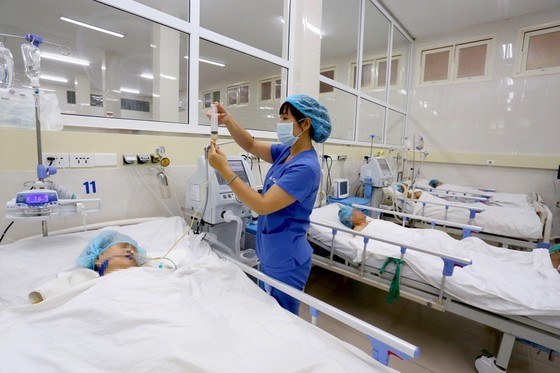
The prestigious WSO award is for stroke centers around the world meeting strict requirements in training, equipment, and the treatment of acute strokes, among other matters.
The assessment process is conducted by the local competent agency and the two international agencies. The committee of Stroke Association will have final decision.
The Hue Central Hospital is one of the three hospitals in Vietnam to be so awarded.
WSO Angels Awards recognize hospitals that have demonstrated clear commitment to quality stroke care and have established cultures and systems to support continuous improvement.
To achieve the levels “Gold Status”, “Platinum Status”, and “Diamond Status”, the following criteria must be fulfilled registration criteria met, percent of patients treated with door to recanalization therapy time less than 60 minutes, percent of all suspected stroke patients undergoing CT or MRI imaging procedure
Hospital Director Professor Pham Nhu Hiep shared that in the next time, the hospital’s stroke center will strive for gold status of WSO with the aim to improve treatment and emergency quality contributing to its growth.
Presently, the Southeast Asian country has average 200,000 fresh stroke cases per year with more than 11,000 deaths. Moreover, over 100,000 Vietnamese people suffer disabilities because missing out on the golden period of stroke treatment leaves many permanently disabled.
When a hospital in Vietnam gets the Platinum status, it means the country has applied advanced treatment techniques like their peers in the world.
The hospital has met seven criteria of the Platinum status including at least 75 percent of patients treated with door to recanalization therapy time less than 60 minutes; at least 85 percent of all suspected stroke patients undergoing CT or MRI imaging, at least 85 percent of atrial fibrillation related stroke patients discharged with anticoagulants; minimum 85 percent of Ischaemic stroke patients discharged with antiplatelets and minimum 85 percent of all stroke patients undergoing dysphagia screen.
Stroke is the second leading cause of death and disability worldwide and is responsible for 116 million years of healthy life lost each year. The impact on individuals, families and society is incalculable.
























